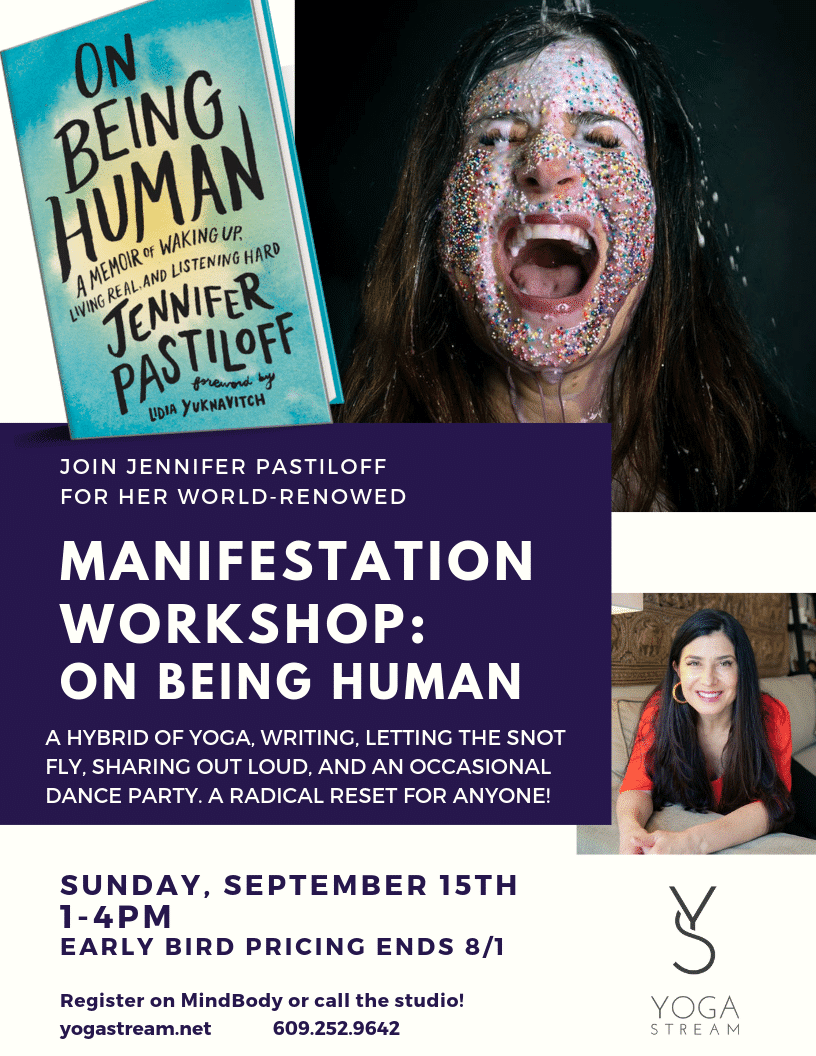
By Nikki A. Sambitsky
“Just ‘cause you can’t see it, doesn’t mean it, isn’t there.”
-Lyrics taken from “One More Light” as performed by Chester Charles Bennington,
March 20, 1976-June 20, 2017
Chester Bennington is Dead.
Chester Bennington is dead; I sit struggling with my feelings, knowing what it feels like to reside in that same dark space, grateful to that angelic light, that blessed essence, for guiding me out.
Chester Bennington is dead; his family, bandmates, fans, the world, and I mourn a life who departed this earthly plane too soon. Forsaken youth around the world, in their disbelief and sorrow, crafted makeshift memorials. Some stood singing, some stood in silence, all held slim, white candles that glowed and flickered through the night’s shadowy shroud during poignant vigils.
Chester Bennington is dead; the sadness is all balled up inside my chest, knotted, tangled, coiled, yet, still tethered to my own demons, my own depression that lingers within me.
Chester Bennington is dead; I can’t make peace with, can’t wrap my head around, can’t make sense of how a gentle, tortured soul let his demons overtake him. Was he too tired, too weary, too worn down to fight any further?
Chester Bennington is dead; why, with so much to lose, did he appear to give it all up so readily? A new album released, One More Light, the title tastes bittersweet, lands sour and ironic on my tongue.
Chester Bennington is dead; Linkin Park’s music played over my Pandora drums up despair, forces me to reminisce, reminds me of life’s fragility, disturbs me when I think about the heart, soul, and voice of a band excised, stripped away, ripped out, forever silenced.
Chester Bennington is dead; maybe he couldn’t outrun the shadows of grief, the apparitions of sexual abuse, the beasts of drug abuse that haunted and hunted him every waking day of his life.
Chester Bennington is dead; who gave him the God damn right to do something I’ve been told not to do ever since I understood what emotions were and how they twisted you up inside.
Chester Bennington is dead; my Catholic parents told me as a young girl that people who “killed themselves” went straight to hell, or else, spent all of eternity writhing and suffering in purgatory.
Chester Bennington is dead; purgatory, to my 12-year-old brain, sounded much worse than hell. I imagined trillions of tortured souls stuck in the in-between-ness, screaming, sobbing, pleading, to simply catch an evanescent glance of God.
Chester Bennington is dead; when will the stigma surrounding mental illness be struck from our collective consciousness? When will we be wary of the heft, the power, the razor-sharp intensity of our words? Say “died by suicide” instead of “committed suicide,” and for once put the blame on the illness instead of the deceased and their surviving dear ones.
Chester Bennington is dead; my ex-boyfriend, an electric engineer, died by suicide a few years ago. Amid the convoluted details surrounding his death, my mind cleaves to the fact, imagines and recreates the scene, of a father finding his oldest son unresponsive, lifeless, lost, eternally expired in a home he dreamed of, saved for, and worked extra hours to cover the mortgage for, after uncharacteristically missing work without notice.
Chester Bennington is dead; I can still hear the despondence, the disconnect, the deep sense of loss in his mother’s voice as she spoke to me over the phone that night after the wake.
Chester Bennington is dead; I wonder about the whereabouts of his soul. I wonder if his suffering spirit is finally flying free, lingering in limbo, or fanning the flames of hell with lifeless, phantom limbs. I wonder if his mother struggles to stay sane in her newfound silence.
Chester Bennington is dead; why is it that now it’s okay to openly talk about depression and suicide without fear of being shamed or judged about the things we sometimes hide and sometimes cannot control?
Chester Bennington is dead; what about all the lives lost to suicide and sadness so many years before, lives so conveniently swept away in the silence?
Chester Bennington is dead; in the sweeping away of lost lives, we have also lost part of ourselves amidst that deafening silence.
Chester Bennington is dead; why do we wait so long, too long, to reach out to the ones we love as they sink, drown, surrender to the sadness, snuff out their lives, succumb to the demons who tell them they are not good enough, are not worthy enough, are not lovable enough, are not capable enough, are not soul-achingly beautiful enough to walk this blessed earth, this sacred ground where our human energies should be converging, swirling, and fighting with every breath to live life to the fullest?
Chester Bennington is dead; I thought the overwhelming sadness would stop after Kurt Cobain, Amy Winehouse, Robin Williams, and Chris Cornell, but the waves keep swelling, keep crashing.
Chester Bennington is dead; those same swells sweep up our loved ones, our friends, our family, our neighbors, and anyone we hold dear. No one is safe. Nothing is sacred.
Chester Bennington is dead; I never imagined that at 23 I would discover a band who understood my clinical depression in a raw, poetic, deep way. Hybrid Theory was my everything.
Chester Bennington is dead; he never knew the infinite lives he touched, lives he saved through the sheer power of his voice, through vulnerable lyrics he penned out of life experience.
Chester Bennington is dead; his hurt, his pain, his anger, his gut-wrenching sorrow bled out through the screams, through the vocal tension, through the utter angst and amplitude of his voice.
Chester Bennington is dead; these words become a meditation on life, death, grief, depression, and suicide.
Chester Bennington is dead; maybe if I keep typing this sentence, it will become untrue.
Chester Bennington is dead; he was 41 and I am 40 and I still cannot believe we live in a world where suicide is such a thing.
Chester Bennington is dead; there were times when I thought about doing the same, but I pushed back against the fleeting notion, swallowed another anti-depressant, and called my therapist.
Chester Bennington is dead; there were times, in my younger years, when at my lowest, I contemplated getting out of the bed I laid in for days on end, not to shower and wash off the stink of life, but to take all my life away.
Chester Bennington is dead; the last time I thought about it, taking it all away, I was in my early thirties, newly married with overtraining syndrome from finishing my first half marathon, depressed, standing at the bathroom sink, staring at myself in the mirror, thinking about drinking the two bottles of nighttime cold syrup on the bathroom sink staring at me staring at myself in the mirror—a random text from a dear friend telling me she loved me saved my life in that moment.
Chester Bennington is dead; he leaves behind not only his loving wife and children, but also his brothers in music — his bandmates, and devoted fans. I cannot imagine how they all will even begin to move on from this.
Chester Bennington is dead; my heart aches for his wife and six children.
Chester Bennington is dead; I will never do that to my family.
Chester Bennington is dead; maybe if I keep typing this sentence it will finally sink in.

Nikki A. Sambitsky earned her MFA in creative writing, specifically focusing on lyric/fragment essay, from the University of Southern Maine’s Stonecoast MFA program. She holds a BA in journalism from Central Connecticut State University and is currently working on a collection of essays, which center on mental illness, her family, and her husband and two autistic children. She enjoys writing essays that explore the meaning of family, family issues, and autism. Her journalism work and creative nonfiction has appeared in The Helix, Gravel Magazine, and West Hartford Magazine. She was a scholarship recipient to the 2018 Slice Literary Writers’ Conference, and her essay, “Happy Birthday (Numb)” was selected as a finalist in the nonfiction category in the Slice Literary Writers’ Conference’s Emerging Writers Contest. Mrs. Sambitsky was also a scholarship recipient to the 2018 Murphy Writing Workshop of Stockton University. Her essay, “Penny Drop,” was recently published in Longridge Review in November 2018, where it was also nominated for a Pushcart Prize. She lives with her husband, two children, and way too many animals in a peaceful, rural, area of Connecticut.

